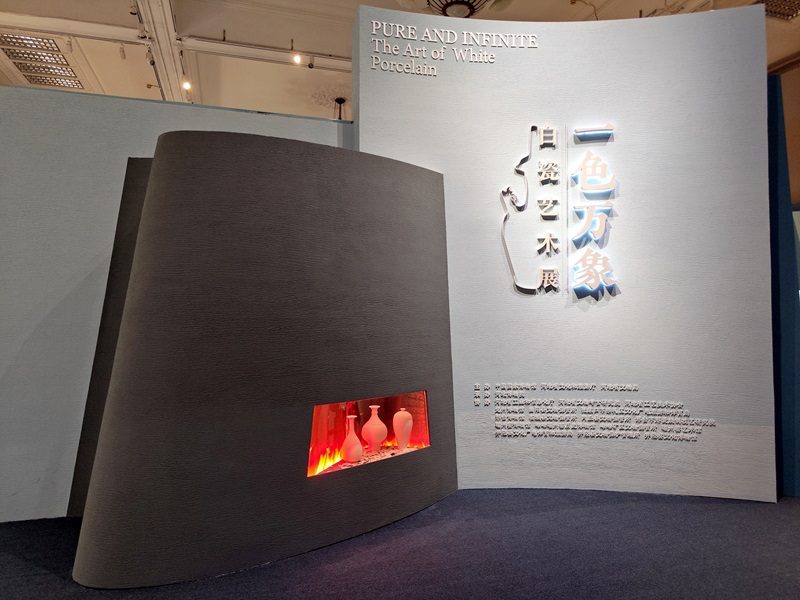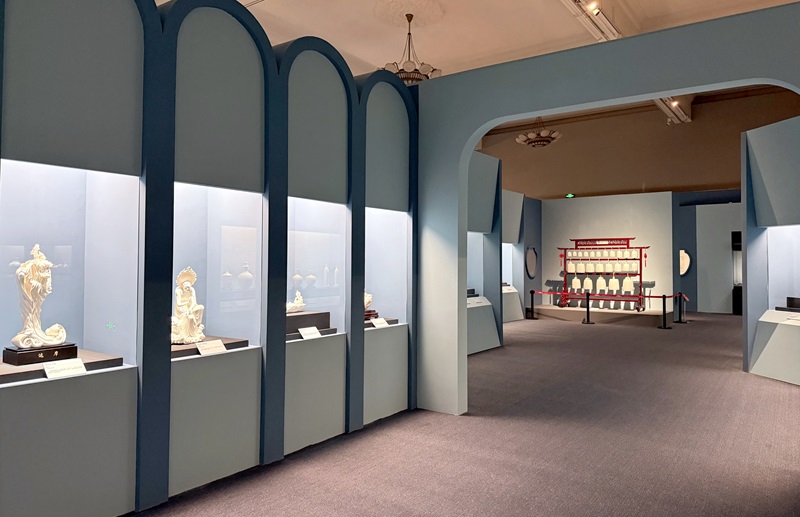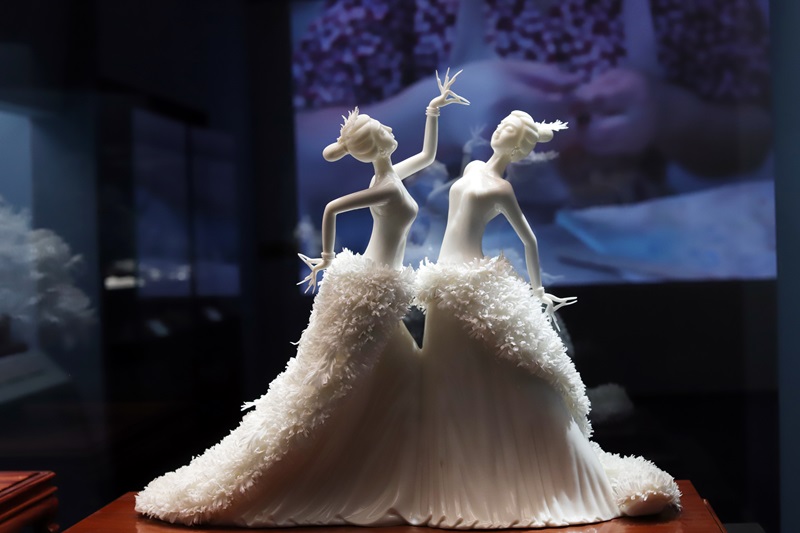The Beauty of White Porcelain: An Artistic Journey through Time

As the Lunar New Year approaches, the Hebei Museum, in collaboration with the National Museum of China (NMC), unveiled the exhibition “Pure and Infinite—The Art of White Porcelain.” This marks the third event that the NMC has brought its exceptional exhibitions to Hebei Province, ushering in the Chinese New Year with a celebration of cultural heritage.

“Pure and Infinite—The Art of White Porcelain,” an exhibition at Hebei Museum, in Shijiazhuang, Hebei province, is a collaboration between the National Museum of China and Hebei Museum. Photo courtesy of the National Museum of China
Throughout China’s history, white, a fundamental color among the traditional five hues, embodies profound philosophical and aesthetic values while playing a pivotal role in the development of ceramic art. Hebei, acknowledged as a significant cradle of ancient Chinese porcelain in northern China, is renowned for kilns like Xing, Ding, Cizhou, and Jingxing. These kilns have significantly influenced Chinese ceramic history, highlighting the achievements of ancient white porcelain and serving as a wellspring of inspiration for future ceramic artists. Meanwhile, the Dehua kiln in the south, famed for its distinctive “Chinese white,” stands as a pinnacle of porcelain craftsmanship.
The exhibition traces the evolution of white porcelain from ancient to contemporary times, showcasing more than 300 exceptional works from notable kilns like Hebei’s Xing, Ding, Cizhou, and Jingxing, along with the Dehua Kiln from Fujian Province. These pieces are not only artistic masterpieces from different epochs, but also carry significant cultural and historical value.

“Pure and Infinite—The Art of White Porcelain,” an exhibition at Hebei Museum, in Shijiazhuang, Hebei province, is a collaboration between the National Museum of China and Hebei Museum. Photo courtesy of the National Museum of China
Wang Yueqian, a research fellow and curator at the NMC, shared that the exhibition aims to introduce a wider audience to the charm and cultural depth of Chinese white porcelain. He also emphasized the exhibition’s role in fostering the preservation and continued evolution of this invaluable cultural heritage.